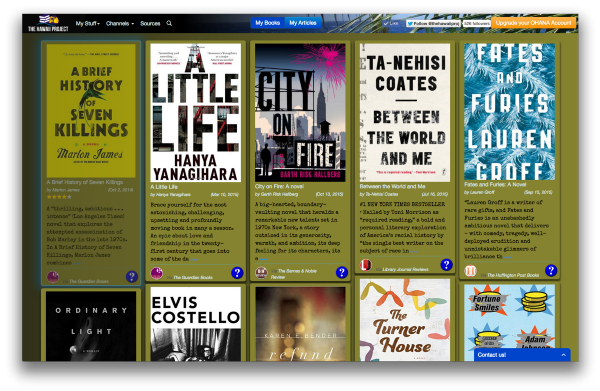The hysteria over ebook sales drops is mistaken.

If you follow book news, you haven’t been able to get away from headlines shrieking about how the book industry is dying (again!), and ebook sales are falling, and the world is ending ( Are we losing faith in e-books? , Print isn’t Dead, but e-Books may just be, Publisher Revenues Down as Ebook Buying Slows, Book Sales hang on as eBook sales wither).
All of this hand-wringing was generated by a dubious report by the Association of American Publishers, as reported by The New York Times and others. Here’s the rub: that study only looks at some publishers and doesn’t capture the exploding indie book publishing scene. NPR has a great short take on it here. An excerpt:
DATA GUY: They may be driving consumers not from e-books to print but from their e-books to lower-priced indie e-books and Amazon-published e-books.
NEARY: That’s Data Guy. He and self-publishing phenomenon Hugh Howey are the masterminds behind Author Earnings, a report which looks at the book market from a different perspective. Data Guy uses a pseudonym because he’s also an author and wants to keep his two roles separate because — well, because the traditional publishing industry, as he calls it, is skeptical of Author Earnings. Data Guy in turn says the traditional way of tracking book sales leaves out a big part of the e-book market.
DATA GUY: The big picture that they present is based on the sales of essentially 1,200 publishers only. And the assumption in traditional circles is that, well, that must surely represent the vast majority of book sales — 85 percent, 90 percent. And in the print world, that’s definitely true.
NEARY: But that’s not true for e-books especially self-published e-books, most of which are sold by Amazon. And Amazon does not report sales figures, so the Author Earnings guys figured out a way to estimate them by gathering data from the Amazon site. Their figures are not based on dollars but on the number of books sold. According to Author Earnings, the e-book market is thriving, but traditional publishers’ share of it has slipped to about one-third.
What’s actually going on is a channel shift. People are buying more and more indie books from Amazon, and those sales are effectively invisible to everyone, so they conclude the sky is falling. It’s not.
Here’s the real rub: in a world where publishers aren’t there separating wheat from chaff (assuming they were good at it in the first place), how to great indie books find their readers? And vice versa? The number of books published is exploding — 5x in the last 5 years — how can you find the great stuff? What you get on Amazon is the “rating and reviews” model of selection — which we’ve argued in the past is fundamentally broken.
https://medium.com/p/ebcd1b057749
At The Hawaii Project, we’re dedicated to helping make sense of this digital flood of news books. A personalized, interest-based feed of great books (indie or not), driven by what the web’s leading tastemakers and influencers are writing about. Or just take a look our Trending Books report, that shows what people are writing about most. Whether published a major house, or just uploaded to Amazon by the author, if it’s great people will write about it. We’ll see that and bring you the book if it’s relevant for you.
